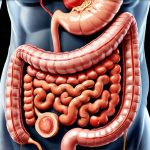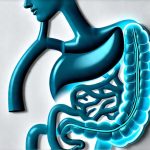Aging is a natural part of life, bringing with it changes in many bodily functions. One system particularly affected by these changes is the digestive system. As we age, our bodies undergo physiological shifts that can impact how effectively we digest food, absorb nutrients, and eliminate waste. Understanding these impacts is crucial for maintaining overall health and well-being as we grow older.
These alterations aren’t necessarily a sign of illness but rather a natural consequence of time. However, they can contribute to discomfort, nutritional deficiencies, or other health concerns if not understood and managed appropriately. Recognizing the specific ways aging affects digestion allows individuals to make informed lifestyle choices and seek appropriate support when needed, ensuring continued vitality throughout their later years.
Physiological Changes with Age
The digestive system experiences numerous changes as we age, affecting each stage of the process from chewing and swallowing to nutrient absorption and waste elimination. These alterations are often gradual and can vary significantly between individuals depending on genetics, lifestyle, and overall health. It’s important to remember that aging doesn’t automatically equate to significant digestive problems; many older adults maintain excellent digestive function with appropriate care.
These changes aren’t always negative. The body adapts, but the adaptations can sometimes lead to altered experiences or increased susceptibility to certain issues. Understanding these changes is key to supporting healthy digestion throughout life.
Common Digestive Issues in Older Adults
Many common digestive complaints become more prevalent as we age, though not necessarily a direct result of aging itself. Often, they are exacerbated by age-related physiological changes combined with other factors such as medication use or chronic conditions. Constipation is arguably the most frequently reported issue, followed closely by heartburn and difficulties swallowing.
Changes in Gastrointestinal Motility
One significant change involves gastrointestinal motility – the movement of food through the digestive tract. As we age, peristalsis (the wave-like muscle contractions that move food along) tends to slow down. This slower transit time can lead to constipation as stool remains in the colon for longer periods, allowing more water to be absorbed, making it harder and drier. Reduced motility also impacts nutrient absorption, potentially leading to deficiencies over time.
Furthermore, this slowed movement can increase exposure of the intestinal lining to digestive contents, sometimes contributing to discomfort or bloating. The lower esophageal sphincter, which prevents stomach acid from flowing back into the esophagus, may also weaken with age, increasing the risk of heartburn and gastroesophageal reflux disease (GERD).
Reduced Digestive Enzyme Production
The production of crucial digestive enzymes – such as lactase (for digesting lactose), amylase (for carbohydrates), and protease (for proteins) – often declines with age. This reduction can impair the body’s ability to efficiently break down food, leading to malabsorption and potential nutrient deficiencies. Lactose intolerance, for example, becomes more common in older adults because of diminished lactase production.
This reduced enzyme activity doesn’t necessarily mean complete inability to digest certain foods, but it can lead to increased discomfort after meals or a feeling of fullness with smaller portions. It also highlights the importance of ensuring adequate nutrient intake through varied and balanced dietary choices.
Decreased Stomach Acid Production
Stomach acid plays a vital role in digestion by breaking down food and killing harmful bacteria. As we age, many individuals experience a natural decrease in stomach acid production (hypochlorhydria). This can impair protein digestion, reduce the absorption of essential nutrients like vitamin B12 and iron, and increase susceptibility to bacterial overgrowth in the small intestine.
The reduced acidity also diminishes the protective function against ingested pathogens, potentially increasing the risk of foodborne illnesses. While some medications used by older adults may further contribute to decreased stomach acid production, it’s primarily a natural part of the aging process.
Maintaining optimal digestive health as we age requires proactive steps and awareness. Focusing on diet—prioritizing fiber-rich foods, staying adequately hydrated, and consuming smaller, more frequent meals—can significantly support healthy digestion. Regular physical activity also plays a role in stimulating intestinal motility. Consulting with healthcare professionals to review medications and address any underlying conditions is equally important for managing digestive changes effectively and ensuring continued well-being.


















